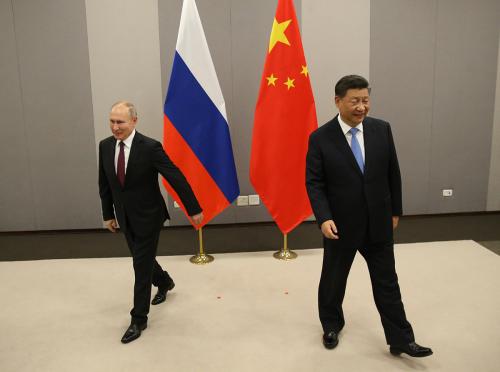Is Russia launching a military operation to defend China's western defense line?
Whatever the short-term outcome of the war in the Ukraine, US aggressive policy against Russia, within the framework of aiming to create bad relations between
Russia and China, will continue.
- Análisis

Some people in China mistakenly consider that the war in Ukraine is simply about US/NATO and Russia. This is quite wrong. Russia’s war in Ukraine is in reality also the Western flank of defence against US aggression against China – as any realistic analysis of the geopolitical situation makes clear. The aim of this article is to analyse the geopolitical situation on this issue.
The US considers China, not Russia, the main country it wants to weaken
The US is quite explicit in its official positions, as well as numerous unofficial analyses, and a bipartisan Democratic-Republican Party-political consensus, that it considers that the main country it wishes to weaken, and attack, is China. But the tactics the US has to use in this attack on China are dictated by its overall strategic position. And these dictate that the US has to first launch a full-scale attack on Russia before China.
The real dynamics of the situation regarding relations between the US, China and Russia may be made clear by a comparison to the US’s first “Cold War” against the USSR. In that the Soviet Union was militarily strong but economically weak compared to the US. The USSR’s nuclear forces were essentially equivalent to the US, and it possessed extremely strong conventional forces. But, in contrast to its military strength Soviet post-World War II economic policy was a failure. Its economic growth rate was not significantly above the world average and from the 1970s onwards its GDP growth was actually slower than the US.
The strategic situation of that Cold War therefore dictated that the strategy of the US was to attempt to transfer struggles onto the economic terrain. Even the US military build-up in the 1980s under Reagan was not intended to wage war with the USSR. It was intended to put economic pressure on the Soviet Union by forcing it into an arms race – that is, the US intended to take advantage of the post-World War II failure of economic policy by the USSR.
The US finds itself in the exact opposite situation in its competition with China. In this competition the US is militarily strong but its economic position is weaker than its military position. China’s economy has been growing much faster than the US for more than four decades. China’s economy is in market price terms approximately twice as large in relation to the US as the USSR ever was. In purchasing power parity (PPP) terms China’s economy is already larger than the US. Most recently China has come through the last two major international economic crisis – the post-2007 international financial crisis and the Covid19 recession – with much more rapid economic growth than the US.
However, in military terms the US is still considerably stronger than China. Objectively, as the US is stronger militarily but weaker economically, this means the logical strategy for the US is to attempt to transfer conflicts from the economic to the military terrain.
To make an historical comparison, the notorious declaration by German Chief of Staff von Moltke in 1912 was that ‘war is unavoidable and the sooner the better.’ But this was not an empty bellicose statement but, from the point of view of German imperialism, a rational calculation. But 1912 both Russia and the US were growing economically more rapidly than Germany - which would inevitably lead to them becoming militarily stronger than Germany. Therefore, von Moltke called for war as soon as possible.
This is similarly the great danger of US war against China at the present. That the US will decide to try to use its military strength compared to China to attack China before China’s economic growth makes it a military equal to the US.
…Continue reading below in the pdf version.
- John Ross (also known as Luo Siyi in China) is Senior researcher of Chongyang Institute of Financial Research, Renmin University of China, and special author of Observer.com
First published in Chinese at https://www.guancha.cn/LuoSiYi/2022_03_15_630326_s.shtml
Del mismo autor
- Is Russia launching a military operation to defend China's western defense line? 17/03/2022
- China is working to expand its ties to Latin America 18/11/2020
- China trabaja para ampliar sus vínculos con Latinoamérica 18/11/2020
- A diferença entre a resposta dos EUA e da China ao COVID-19 é impressionante 23/09/2020
- The difference between the US and China’s response to COVID-19 is staggering 16/09/2020
- Coronavírus: A propaganda anti-China trará uma catástrofe para o Ocidente 31/03/2020
Clasificado en
Clasificado en:
Geopolítica, Guerra y Paz
- Prabir Purkayastha 08/04/2022
- Marco Fernandes 07/04/2022
- Geraldina Colotti 07/04/2022
- Rafael Bautista S. 06/04/2022
- Adalid Contreras Baspineiro 06/04/2022
